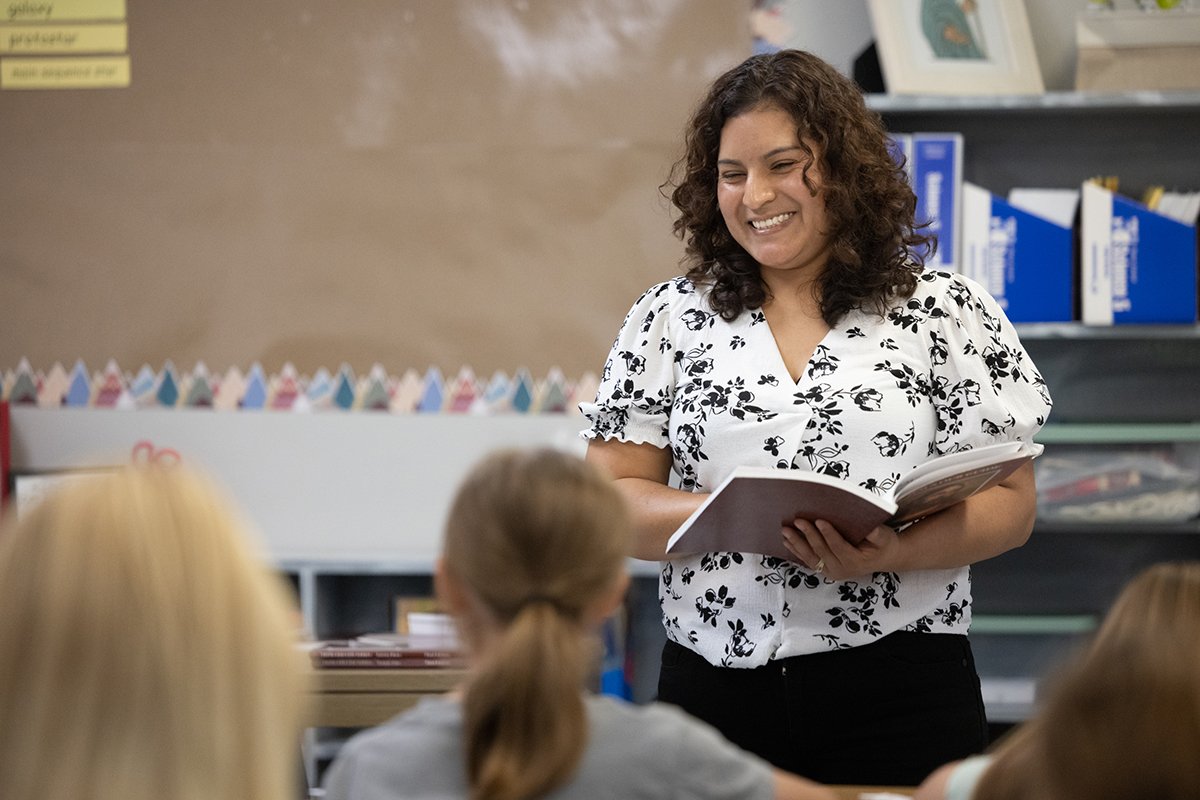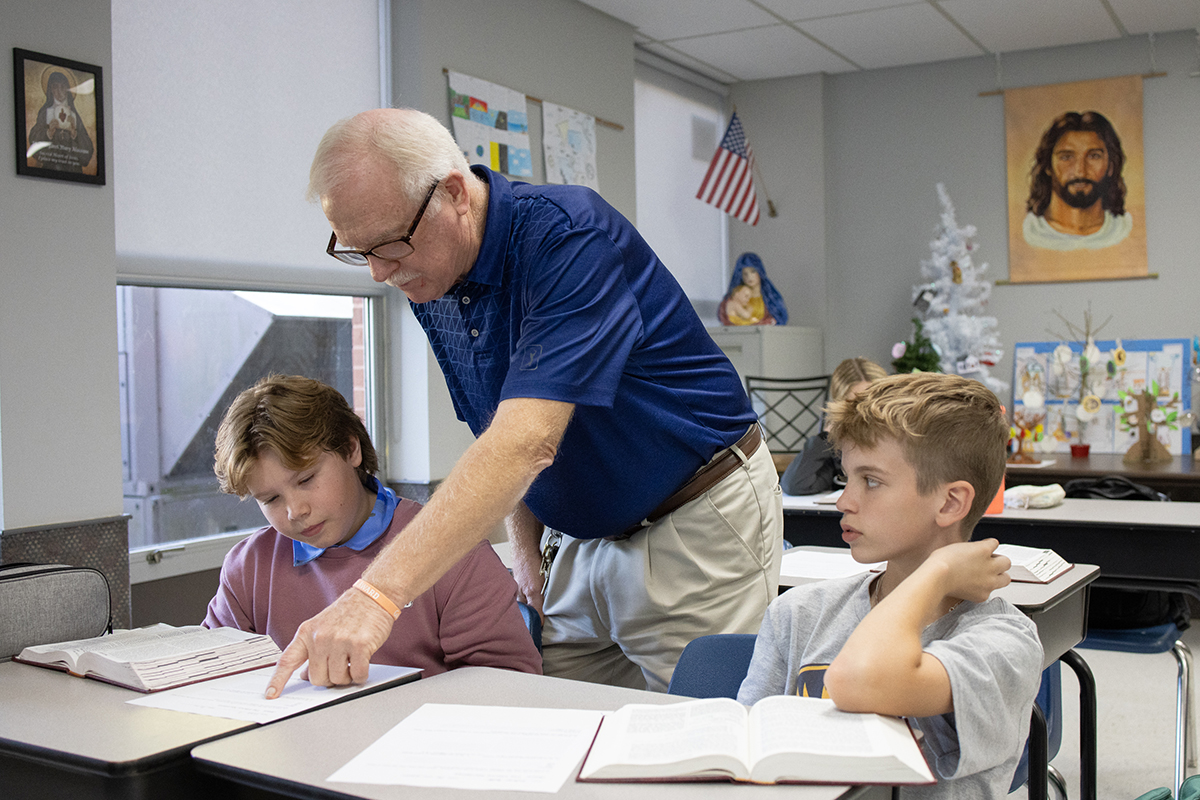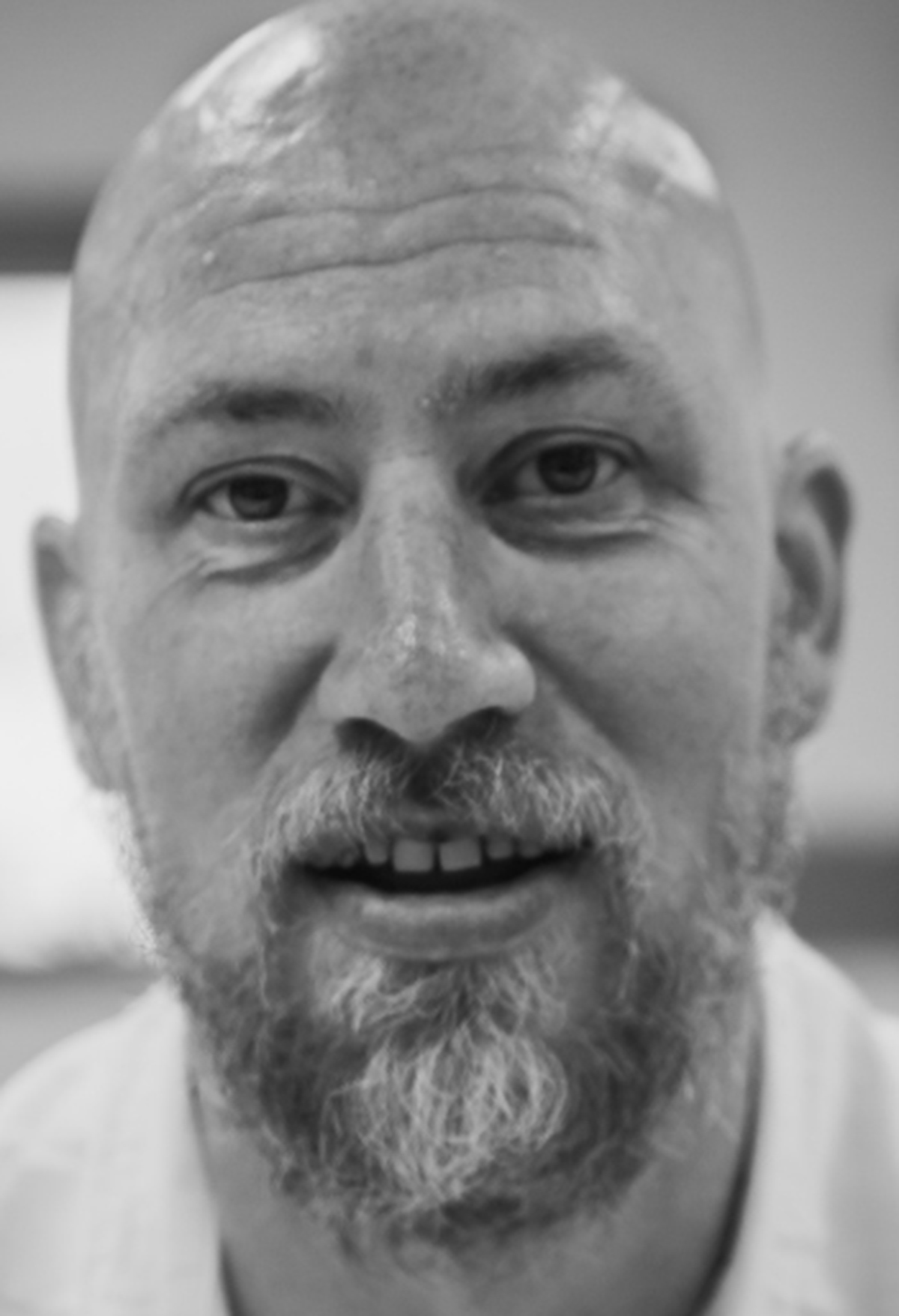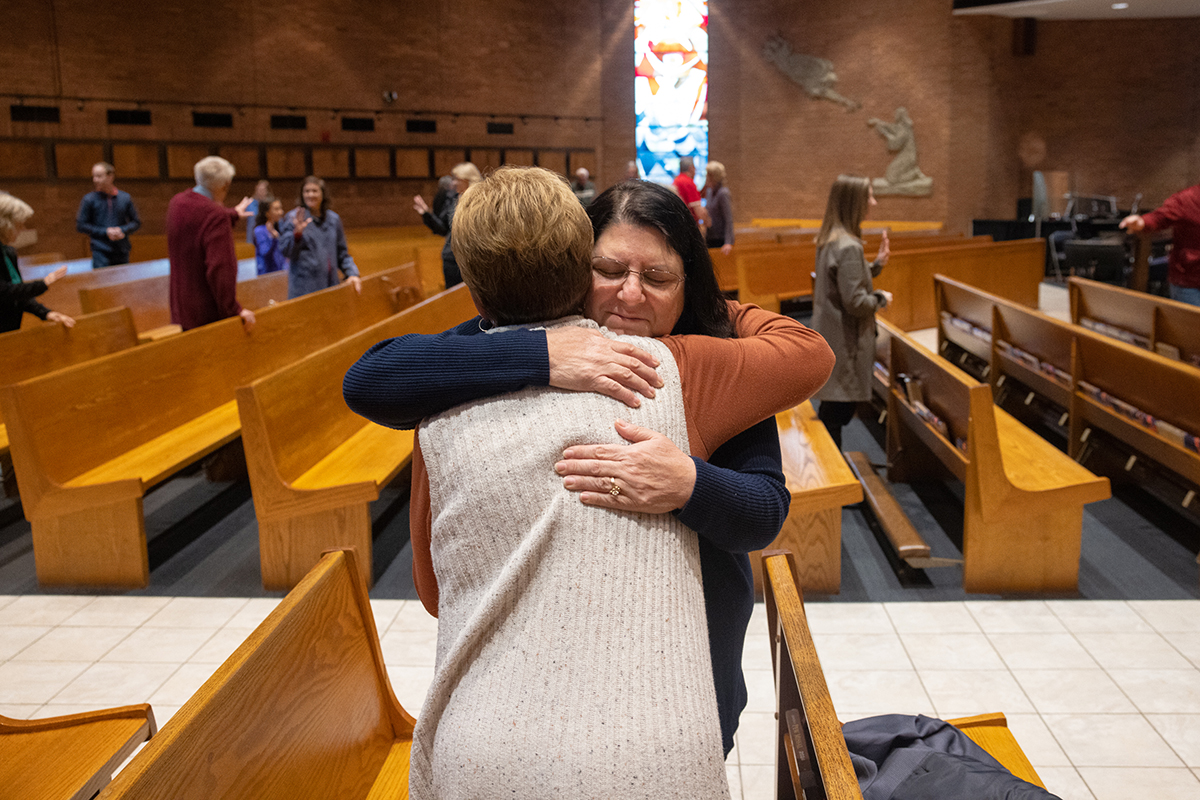Aquinas Institute program helps form ‘master preachers’ for evangelization

New Frontiers in Preaching Academy trains deacons, lay leaders in Hispanic and Black communities
Irene Gonzalez had the attention of her fourth-grade Parish School of Religion students at Sacred Heart in Troy as they recapped a lesson from Genesis on Noah and his covenant with God.
She asked her students: What is a covenant?
Several of them looked at each other, unsure of how to answer. Gonzalez explained: “It’s an agreement, like a contract. God promised not to leave us — it’s a promise He made to us.”
Then she took it further and applied the lesson to her students: “Did you know that through our baptism, we make a covenant with God?”
Gonzalez, a volunteer coordinator of Hispanic ministry at Sacred Heart, said that relating those lessons to her students’ lives is an important skill she recently honed as a student of Aquinas Institute of Theology’s New Frontiers in Preaching Academy, which launched earlier this year.
She was among 19 graduates in the program’s first cohort, which forms permanent deacons and lay pastoral leaders in Hispanic and African-American Catholic communities to become master preachers. Courses include theological foundations, preaching the Bible, Black and Hispanic history and culture, liturgical preaching and a preaching practicum.
Fueling the program is a $1.25 million grant from Lilly Endowment Inc. as part of its Compelling Preaching Initiative. The 10-week hybrid program, which includes a year of mentorship after graduation, trains master preachers, focusing on permanent deacons; it is extended to lay leaders in various ministries, emphasizing preaching in a broader sense as evangelical engagement.

The goal is to form the next generation of pastoral leaders to serve U.S. Catholics, rooted in the Black and Hispanic experience, said Aquinas Institute president Father Mark Wedig, OP.
The program comes while the U.S. Catholic Church is experiencing a growth in Hispanic Catholic population. Father Wedig said that roughly 45-50% of all Catholics in the United States are Hispanic, and that number is expected to reach 60-65% by the year 2030. There are an estimated 3,000 Hispanic permanent deacons in the U.S., he added.
“Part of the ‘why’ is an expanding Church that is underserved and needs assistance in the area of forming master preachers for the sake of evangelization within those communities,” he said.
Meanwhile, the number of Black Catholics in the U.S. is declining, which underscores the importance of developing leaders in that community, too, Father Wedig said. A 2022 report from the Pew Research Center showed that Black Catholics are a minority among Black adults (6%) and make up an even smaller share of Catholic adults (4%).
The Dominican tradition of preaching intertwines the word of God with Catholic teaching and tradition, making it available and accessible to all, Father Wedig said. He added that it extends beyond homiletics into an “evangelical spreading of the word, interacting with people at all different levels.”
In a course on preaching the Bible, instructor Danielle Harrison worked with the African-American cohort on preaching with context, drawing out how Scripture and tradition apply to us today and especially to the experience of African-American Catholics, she said.
“It’s so important to help people see how the Scripture is still living, breathing and speaking to us today and not just a history book,” Harrison said. “Our number one job is to show that God loves them and desires to be in relationship with them and how the Scripture speaks to that.”
In the students’ preaching practicum, Father Lalo Jara, OFM, worked with the Hispanic cohort on practical techniques and helped them understand the diversity of cultures within the Hispanic Catholic community.
“I teach them that it’s not about me but the audience and who I am preaching to and their background,” he said. “If I have a diverse Hispanic community, I need to be aware of that and learn a little bit more — how can I include them in those expressions and examples and traditions.”
Gonzalez, the Hispanic ministry coordinator, dove deeper into the topic while exploring sacramental traditions among the Hispanic community at Sacred Heart. For example, a popular Guatemalan tradition is to make an offering of white flowers when someone makes their first Communion.
She is originally from Mexico, where “we have our candle, our rosary and our Bible — those are gifts that we receive at our first Communion,” she said. “There are so many little differences in our cultures.”
Preaching isn’t simply speaking, but also serving and being an example to others, Gonzalez said. “When you’re preaching, you have to reach the entire community, not just one person,” she said. “I see how I can talk to the kids in a way that they can understand God’s love in a way that’s easier for them to see. It’s not going to be the same way I talk to an adult. We are all called to proclaim God’s word, even if it’s just with our service, with the things that we do.”
New Frontiers in Preaching Academy
Aquinas Institute of Theology is accepting inquires for the second cohort of its New Frontiers in Preaching Academy, expected to begin in February 2025.
An information session will be held online at 7 p.m. Thursday, Oct. 24. To sign up, visit stlreview.com/3ZT7Wcb.
For more information on the New Frontiers in Preaching Academy, contact program coordinator Theresa Orozco at (314) 256-8885 or email orozco@ai.edu.
New Frontiers in Preaching Academy trains deacons, lay leaders in Hispanic and Black communities
Subscribe to Read All St. Louis Review Stories
All readers receive 5 stories to read free per month. After that, readers will need to be logged in.
If you are currently receive the St. Louis Review at your home or office, please send your name and address (and subscriber id if you know it) to subscriptions@stlouisreview.com to get your login information.
If you are not currently a subscriber to the St. Louis Review, please contact subscriptions@stlouisreview.com for information on how to subscribe.





